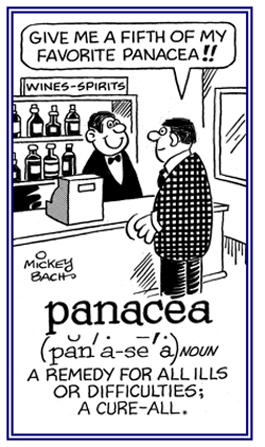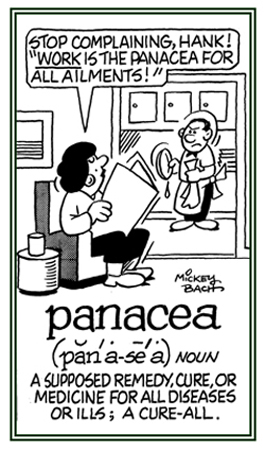pan-, panto-, pant-
(Greek: all, every, entire; always)
In ancient times such events were frequently interpreted by oracles, and their importance persisted through the Middle Ages, even up to modern times. From them have stemmed countless superstitions that many people still believe may bring them good or bad luck, though the interpretations may vary in different localities.
2. A universal remedy or easy solution that will make things regarding a situation better: As much as people want conditions to be better, there is no panacea for the world's problems.
3. Etymology: from Latin panacea, "an all-healing herb" (variously identified), from Greek panakeia, "cure-all", from panakes, "all-healing"; from pan-, "all" + akos, "remedy, cure", from iasthai, "to heal".
The name Panacea comes directly from the name of one of the daughters of Aesculapius, The Greek god of healing. Another daughter was Hygeia.
Both daughters endeavored to follow their father's objectives, but they took different approaches. Panacea promoted the use of specific remedies; such as, medicines, salves, and other curatives as indicated by particular medical needs.
Hygeia was more concerned with preserving health or what is now known as "preventive medicine".


Go to this Word A Day Revisited Index
so you can see more of Mickey Bach's cartoons.
2. Rule over the entire or all of the universe.
3. A universal realm; such as, "the starry panarchy of space" or "the panarchy of created things".
2. Relating to the self-controlling or functionally independence of the entire autonomic nervous system.
Related "all, every" word unit: omni-.

